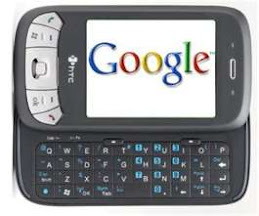In wireless, Verizon, the largest carrier, kept adding more high-paying subscribers than rival AT&T Inc. (T) but like AT&T, it was hurt by the delayed launch of the new iPhone model, and missed analyst expectations for the number of new subscribers on contract-based plans.
Verizon on Friday said its net income rose to $1.38 billion, or 49 cents per share, in the three months ended Sep. 30. That's up from $659 million, or 23 cents per share, a year ago. Excluding an adjustment in the value of its pension plans, Verizon said it earned 56 cents per share. That is a penny above the average forecast of analysts polled by Fact Set.
Pension adjustments were larger in last year's quarter. Without them, the latest earnings were about even with last year. Revenue rose 5.4 percent to $27.9 billion from $26.5 billion a year ago and was in line with analysts' expectations. Verizon Wireless added 882,000 subscribers on contract-based plans. That was a slowdown from iPhone-fueled results earlier in the year - Verizon started selling the coveted Smartphone in February. Analysts had expected about 950,000 additions in the quarter.
Analysts were in general caught flat-footed by the effect of the delayed iPhone launch, underestimating how much people were holding back. Apple Inc.'s overall iPhone sales failed to meet their expectations when it reported Tuesday, sending its stock down. Last week, the company launched the new iPhone 4S. Sprint and AT&T have said sales set records, but Verizon executives were mum on the subject Friday. Verizon subscribers who bought an iPhone earlier this year aren't eligible yet to upgrade to the iPhone 4S for $200. Because they haven't yet "paid off" their phones through service fees, they must pay more, which is probably limiting Verizon's iPhone sales.
Verizon once again beat AT&T in gaining new contract subscribers. It now has 108 million devices connected to its network. Verizon had previously warned that a two-week strike in the local-phone division and the ravages of Hurricane Irene and Tropical Storm Leo would cost it about $250 million in the quarter. Operating income for the division was a weak $53 million, and new installations of FiOS TV and Internet service were the lowest in five years. Verizon Wireless is the growth driver for the company, but Verizon Communications owns only 55 percent of it. The rest belongs to Vodafone Group PLC (VOD) of Britain, which thus gets 45 percent of the profits.
Analyst Kevin Smithen at Macquarie Capital said investors will likely give Verizon a "free pass" on weaker-than-expected FiOS and wireless results, due to the hurricane and delayed iPhone launch, as they look ahead to a stronger fourth quarter.
Shares of Verizon, which is based in New York, rose 32 cents to close at $37.42.












No comments:
Post a Comment